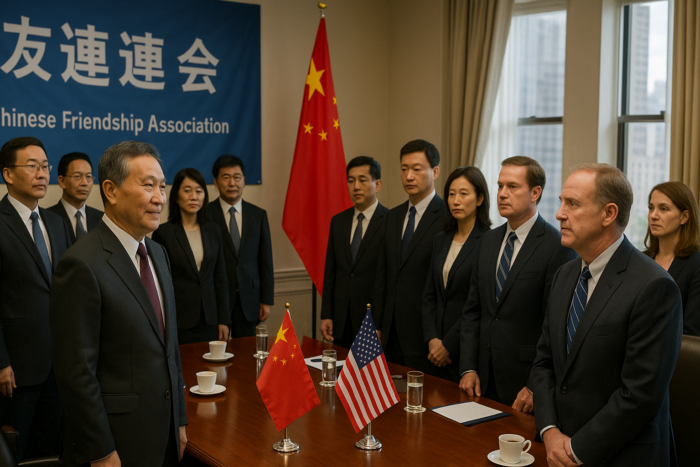The Center for Security Studies (CSS), a Swiss think tank,has published a report examining how the tactics of China’s influence operations have evolved during the first year of the Covid-pandemic. According to the report’s executive summary:
July 2021 In a bid to strengthen perceptions of legitimacy of this messaging campaign, China has relied on official conduits, such as diplomats and state media. This official messaging has largely been framed to stay within the boundaries of platform rules, perceptively taking advantage carve-outs, to claim inaction by social media platforms as confirmation that China is abiding by the rules and as stamp of legitimacy for its narrative control efforts. Anchored within platform rules, the core messaging of China’s influence operations has been promoted by dispensable amplification networks of hijacked or fake social media accounts that can be reconstructed with comparative ease, when taken down by social media companies. […]
To arrive at a careful evaluation of impact, this report concentrates on how the tactics of China’s influence operations have evolved during the first year of the pandemic. Looking at China’s key priority of information control, the first section conceptualizes the adaptation of influence operations to align with this preference while taking advantage of the global reach of social media. Building on this understanding, section two explores the ways in which Chinese influence operations have attempted to systematically exploit carve-outs that have emerged from how social media have regulated official statements and newsworthy content. Section three analyzes in more detail the integrated messaging apparatus China has sought to develop, in particular in respect of the specific roles that China’s diplomatic network, state media, and fake social media accounts play in creating, shaping, and promoting narratives. Unpacking China’s attempts to distinguish its endeavor of narrative control from disinformation campaigns, section four examines China’s responses to accusations of disinformation and steps taken by social media companies and by targeted states to address this specific tactic. The report concludes with evaluating the potential implications of China’s influence operations in terms of their immediate objective to shape international perceptions of China’s actions during the pandemic and raises attention about the capabilities developed in this process and their potential deployment in case of a further deterioration of relations with China.
Read the full report here.












